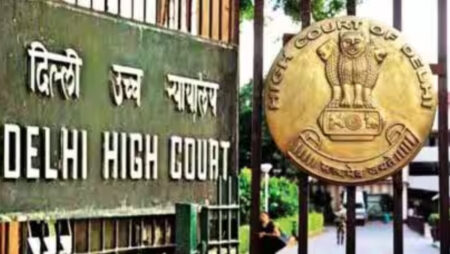In a significant legal development, the Supreme Court of India has delivered a landmark verdict regarding the registration of BS-VI compliant diesel vehicles in Delhi’s National Capital Territory (NCT). The ruling carries far-reaching implications for the region’s automotive industry and environmental governance. The Court clarified in its order that the registration of all BS-VI compliant diesel vehicles is to be allowed in NCT Delhi, irrespective of their requirement for the G-20 summit.

Supreme Court Issues Landmark Ruling on BS-VI Diesel Vehicle Registration in NCT Delhi
The verdict stems from a case concerning the registration of Bharat Stage VI (BS-VI) diesel vehicles in the NCT of Delhi, a jurisdiction grappling with alarming air pollution levels. Earlier. The Court had emphasized the diesel vehicles having a seating capacity of 7 plus 1, coaches and buses that are to be required for the G-20 Summit. But the Amicus Curae submitted that “no to the requirement for registration as the directions passed earlier by NGT did not relate to BS-VI vehicles”. The Court allowed the prayer.
The crux of the judgment lies in the court’s affirmation that only those BS-VI diesel vehicles that conform to the latest emission norms can be registered in the NCT of Delhi. The court cited the imperative need to mitigate air pollution and protect the health and well-being of the city’s residents. This verdict serves as a continuation of the court’s previous interventions aimed at improving the air quality in the national capital region.
The verdict brings clarity to a previous grey area, as the automotive industry sought guidance on the registration of BS-VI diesel vehicles after the rollout of more stringent emission norms. The court’s decision aligns with India’s commitment to reducing vehicular emissions and transitioning towards cleaner and more sustainable modes of transportation.
The judgment also underscores the importance of regulatory adherence and enforcement. The court has called for strict implementation of the ruling, thereby urging the relevant authorities to ensure that non-compliant vehicles do not evade scrutiny during the registration process. This stance is expected to encourage manufacturers to uphold the highest emission standards and adhere to environmental regulations without exception.
The ruling is poised to have a substantial impact on the automotive sector. Automakers will need to adapt to the new reality by focusing on developing and producing vehicles that adhere to the BS-VI norms. This decision could also prompt an acceleration in the adoption of electric and hybrid vehicles as the industry seeks to comply with the environmental mandates outlined by the Supreme Court.
Moreover, the judgment emphasizes the pivotal role of state institutions in safeguarding public health and the environment. By upholding the importance of stringent emission standards, the court’s decision also reinforces the responsibility of authorities to enforce such standards to the fullest extent.
In conclusion, the Supreme Court’s ruling on the registration of BS-VI diesel vehicles in the NCT of Delhi marks a watershed moment in India’s ongoing battle against air pollution. The court has taken a decisive step toward fostering a cleaner and healthier environment by prioritising environmental concerns and public health. The judgment provides clarity to the automotive industry and underscores the need for regulatory compliance and enforcement.
As the nation strives for sustainable growth, this verdict serves as a poignant reminder that environmental preservation remains an indispensable pillar of progress. With this ruling, the Supreme Court sets a powerful precedent that echoes beyond the legal realm, signifying the collective commitment to a greener and more sustainable future for the NCT of Delhi and the entire nation.












